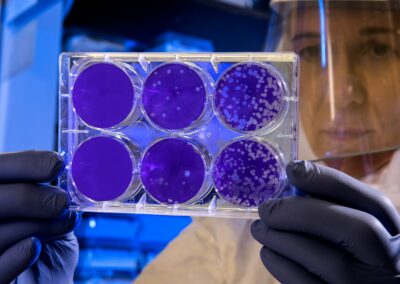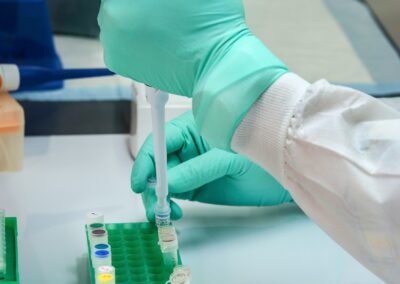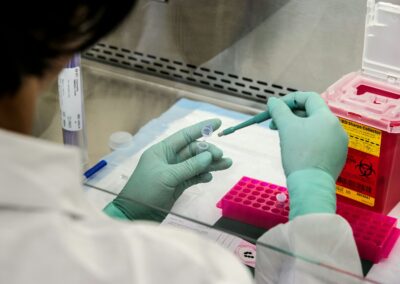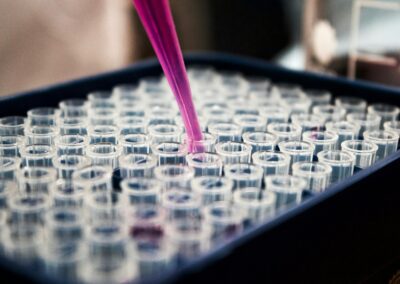Understanding the Ethical Landscape of CRISPR Gene Editing in the Middle East
Ethical Considerations in Editing Genes in Embryos
The use of CRISPR to edit genes in embryos raises significant ethical considerations that are distinct from those associated with somatic cell editing. Embryonic gene editing involves making changes to the DNA of an embryo, which can be inherited by future generations. This capability introduces profound ethical dilemmas, particularly in regions like Saudi Arabia and the UAE, where cultural and religious values play a critical role in shaping public opinion and policy.
In Saudi Arabia and the UAE, the ethical implications of embryonic gene editing are scrutinized through the lens of cultural and religious beliefs. The potential for unintended consequences, such as off-target effects or unforeseen health issues, poses significant ethical concerns. Additionally, the possibility of creating so-called “designer babies,” where genetic modifications are made for non-medical reasons, such as enhancing physical appearance or intelligence, is a contentious issue. These concerns necessitate stringent ethical guidelines and oversight to ensure that the technology is used responsibly and ethically.
Furthermore, the concept of consent is particularly complex in the context of embryonic gene editing. The embryos being edited cannot provide consent, and the changes made will affect not only the individual but also future generations. This raises questions about the rights of individuals born from edited embryos and the ethical legitimacy of making irreversible genetic changes without their consent. In Riyadh and Dubai, policymakers and ethicists are engaging in ongoing dialogues to address these ethical challenges and develop comprehensive regulatory frameworks that reflect societal values and protect individual rights.
Ethical Considerations in Somatic Cell Editing
Somatic cell editing, which involves modifying the genes in a patient’s somatic (non-reproductive) cells, presents a different set of ethical considerations compared to embryonic gene editing. Changes made in somatic cells are not passed on to future generations, which alleviates some of the concerns associated with heritable genetic modifications. However, ethical challenges still exist, particularly regarding the safety, efficacy, and accessibility of these treatments.
In Dubai and Riyadh, the ethical oversight of somatic cell editing focuses on ensuring that the technology is safe and effective for patients. Rigorous clinical trials and regulatory reviews are essential to prevent adverse outcomes and ensure that treatments meet high standards of medical practice. The potential for off-target effects and unintended consequences must be carefully managed through robust scientific oversight and transparent reporting. This approach helps build public trust and ensures that somatic cell editing is used in a manner that prioritizes patient safety and well-being.
Another critical ethical consideration in somatic cell editing is equitable access to these advanced therapies. There is a risk that only wealthy individuals or those in developed regions might benefit from these innovations, exacerbating existing health disparities. In Saudi Arabia and the UAE, efforts are being made to ensure that somatic cell editing therapies are accessible to all segments of the population. This includes developing policies that promote affordability and availability, as well as investing in healthcare infrastructure to support the widespread adoption of these treatments.
Integrating Advanced Technologies for Ethical Oversight
Integrating advanced technologies such as Artificial Intelligence (AI) and blockchain can significantly enhance the ethical oversight of both embryonic and somatic cell editing. AI can help predict and mitigate potential risks by analyzing large datasets and identifying patterns that might indicate adverse effects. In Riyadh and Dubai, AI-driven tools are being explored to enhance the monitoring and evaluation of gene editing projects, ensuring that ethical standards are upheld and potential issues are addressed proactively.
Blockchain technology offers a transparent and immutable platform for tracking genetic modifications and ensuring accountability. By providing a secure record of all gene editing activities, blockchain can enhance trust and transparency in the research process. In Saudi Arabia and the UAE, the implementation of blockchain in biomedical research can help address ethical issues related to consent, data privacy, and the traceability of genetic modifications. This technological integration ensures that gene editing practices are conducted with the highest ethical standards and are subject to rigorous scrutiny.
Additionally, executive coaching and effective communication are crucial in promoting ethical leadership in gene editing. Business executives and mid-level managers in the biotechnology sector must be equipped with the skills to navigate complex ethical landscapes. Executive coaching services in Riyadh and Dubai provide tailored guidance to leaders, helping them foster a culture of ethical decision-making and corporate responsibility. Effective communication ensures that ethical considerations are clearly articulated and understood by all stakeholders, promoting a collaborative approach to ethical oversight.
#CRISPRGeneEditing #EthicalConsiderations #EmbryoEditing #SomaticCellEditing #Biotechnology #AIEthics #BlockchainInBioethics #DubaiInnovation #RiyadhTechnology #BusinessSuccess #ExecutiveCoaching #EffectiveCommunication























